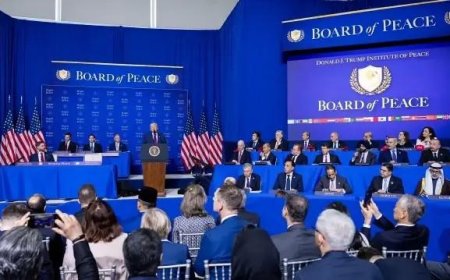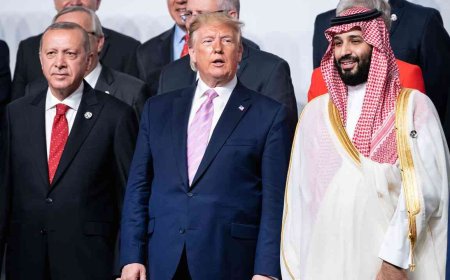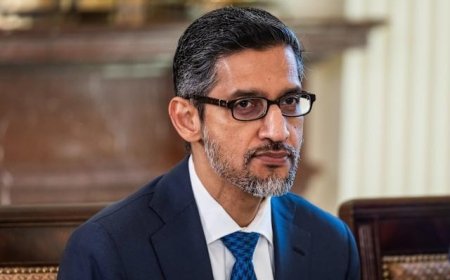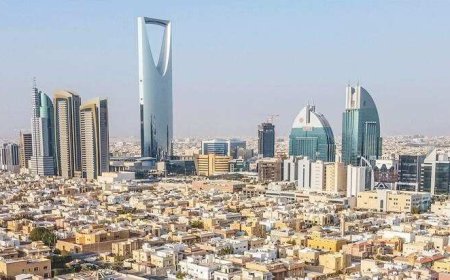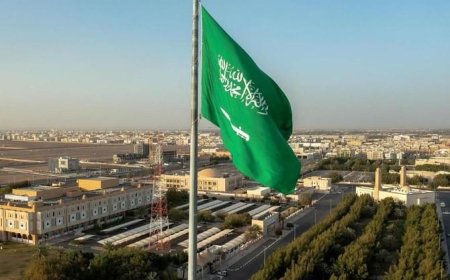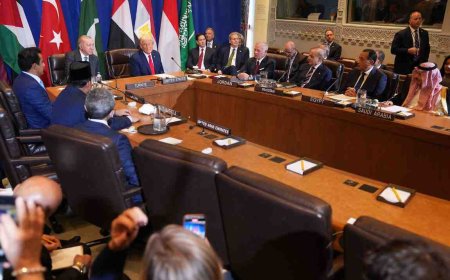Saudi Arabia Enhances Hajj Experience with Temporary Visa Suspension for 14 Countries
Saudi Arabia Enhances Hajj Experience with Temporary Visa Suspension for 14 Countries

In a significant development ahead of the annual Hajj pilgrimage, Saudi Arabia has temporarily suspended the issuance of various visa categories for citizens of 14 countries, including some of the most populous nations in Asia.
The suspension, which includes Umrah, business, and family visit visas, has been implemented as a strategic measure to manage overcrowding and ensure the safety of pilgrims and residents during the peak Hajj season. The restriction will remain in place until mid-June 2025, a period that coincides with the months leading up to and immediately following the Hajj, which is expected to draw millions of Muslims from across the globe.
The affected countries include India, Pakistan, Bangladesh, Indonesia, Egypt, Sudan, Nigeria, Ethiopia, Iran, Iraq, Yemen, Syria, Afghanistan, and Myanmar. These nations typically contribute a substantial number of pilgrims and visitors during the holy months, particularly for Umrah, a non-mandatory pilgrimage that can be performed year-round but sees a surge in participation before Hajj. The Saudi government has stated that diplomatic visas and Hajj-specific visas will remain unaffected, ensuring that official delegations and registered Hajj pilgrims will still be able to travel to the Kingdom for the pilgrimage.
This move is seen as part of broader efforts by Saudi authorities to streamline the management of the Hajj and Umrah seasons, which have grown increasingly complex with rising numbers of pilgrims. In recent years, the Saudi Ministry of Hajj and Umrah has introduced several reforms aimed at improving infrastructure, enhancing crowd control, and digitizing visa and pilgrim services. The temporary suspension of visas for select countries appears to be a calculated step toward preventing overcrowding in the lead-up to Hajj and ensuring the logistical and health-related challenges of hosting millions of people are met effectively.
Historically, large numbers of pilgrims from South Asia, Africa, and parts of the Middle East travel to Saudi Arabia for both Hajj and Umrah, often combining religious obligations with family visits and business-related travel. The suspension of these visas, while temporary, has created concern and confusion among prospective travelers and families planning reunions or business engagements. Travel agencies and tour operators in countries like India, Pakistan, and Bangladesh have reported a wave of inquiries from clients seeking clarification or alternative travel plans, only to be met with confirmation of the suspension from both local Saudi embassies and consulates.
Saudi officials have emphasized that the measure is not punitive but rather precautionary, aimed at ensuring the Kingdom can manage the influx of visitors while maintaining health, safety, and crowd control standards. The Hajj, one of the five pillars of Islam, is a deeply spiritual event that brings together Muslims from diverse backgrounds. However, its magnitude also poses logistical challenges related to accommodation, transportation, public health, and security. The Kingdom has invested heavily in recent decades to modernize and expand facilities in Mecca, Medina, and surrounding areas, including the expansion of the Grand Mosque and the construction of new transportation links. Still, the sheer volume of visitors, often exceeding two million for Hajj alone, requires careful planning and regulation.
Public health considerations are also a driving factor behind the visa suspension. The Hajj season takes place in a hot and crowded environment where the risk of infectious disease transmission, heatstroke, and other health emergencies is elevated. In the post-COVID-19 era, the importance of preventive health measures has been amplified, and Saudi Arabia has worked closely with global health organizations to implement protocols designed to protect both pilgrims and local residents. By limiting non-essential travel during this period, Saudi health authorities can better allocate resources and maintain preparedness for medical emergencies during the Hajj.
The decision has also sparked reactions in the diplomatic and international travel communities. Several governments of the affected countries have reportedly been in contact with Saudi officials seeking clarification on the duration and scope of the suspension. Some have called for the introduction of exceptions for urgent family cases or business matters of national importance. However, Saudi Arabia has reiterated its commitment to maintaining the suspension until mid-June, citing its necessity for the safe and orderly conduct of Hajj operations. Diplomatic engagements are expected to continue, with a focus on maintaining strong bilateral relations while respecting the Kingdom’s sovereign right to regulate entry during critical national events.
On the domestic front, the move is seen as part of Crown Prince Mohammed bin Salman’s broader Vision 2030 plan, which includes transforming the Kingdom into a major global tourism and religious destination. While the temporary suspension may seem counterintuitive to this goal, officials argue that sustainable tourism depends on controlled and safe environments, particularly during events as massive as the Hajj. By prioritizing the safety and experience of pilgrims, the government aims to enhance Saudi Arabia’s image as a responsible and well-managed host of one of the world’s largest annual gatherings.
The suspension also underscores the intricate balance that Saudi authorities must maintain between religious duty, international relations, and logistical reality. With millions of Muslims aspiring to fulfill their spiritual obligations, the Kingdom faces constant pressure to accommodate growing numbers while preserving the sanctity and order of the pilgrimage. This year's restrictions, though temporary, may serve as a blueprint for future crowd management strategies, especially as the global Muslim population continues to grow and travel access becomes more widespread.
For the citizens of the affected countries, the suspension serves as a reminder of the complexities involved in global religious tourism. While disappointing for many who had planned their visits months in advance, the hope remains that normal visa issuance will resume promptly after the Hajj season concludes. Many have expressed understanding of the Kingdom’s rationale, acknowledging the unique challenges of hosting such a monumental event in a safe and dignified manner.
As the pilgrimage season approaches, attention will now turn to the implementation of Hajj-specific measures, including the allocation of quotas, health checks, and coordination with international Hajj missions. The Saudi government’s ability to manage this delicate period without incident will likely influence future policy decisions and shape the experience of millions of Muslims in years to come.
In the meantime, travel agencies, religious organizations, and potential visitors are advised to monitor official announcements from Saudi embassies and the Ministry of Hajj and Umrah. The Kingdom is expected to release further updates as the situation evolves, especially regarding the timeline for reinstating visa services after mid-June. For now, the focus remains firmly on delivering a safe, organized, and spiritually fulfilling Hajj experience for all who are able to attend.
What's Your Reaction?









